
Renovating
A project in the Altrecht Psychiatric Institute in Den Dolder. At
the beginning of august 2017 I took part in a summer school
organised by the Vijfde Seizon at the Altrecht Psychiatric
Institute in Den Dolder. The Vijfde Seizon organises these
residential summer schools for artists who work and stay at
Altrecht
Vijfde Seizoen. The artists Marieke Zwart and Dirk van Lieshout held a
side-programme for art students in which I took part. Rather than
the full three months the students stayed for ten days with the
aim of developing as autonomous artists in a social setting. We
were expected to develop our own work in that time.
Subsequently
our work was exhibited at FOTODOK/CASCO (Utrecht).
When I
arrived at Altrecht for my ten day stay, I noticed that the area
was in decline. The natural surroundings were beautiful, but the
infrastructure of the area was in a bad way. It struck me that the
site of Altrecht was not as well maintained as the immediate
surroundings. As soon as you walked off site, you noticed that
nature, the surroundings and the streets had been neatly
maintained.

Picture by: Trees Heil

Picture by: Trees Heil
My first reaction to this situation was to take control in our own
hands: ‘we’ll renovate everything ourselves!' On the fifth day of
the residency I went to a spot I’d had my eye on. My idea was to
renovate some road markings on the Dolderseweg. These were ‘STOP
or GIVE WAY’ markings known as ‘sharks teeth’ in Dutch. I didn’t
have professional road maintenance paint so I used outdoor white
wallpaint, brushes and duct tape. My idea was to start on my own,
with the thought that people would become curious and possibly
want to to help.
I stood by the ‘STOP’ road
markings and noticed a man sitting on a bench nearby with his head
in his hands. "Hi!" I said, "I have a plan." He replied "Hey ..
sorry .. I don’t have the stamina anymore ... this place drains
all the energy out of me .." A childish reaction occurred to me, I
sagged in both legs and stretched out my arms. From this position
I acted as if I were exhaling a huge amount of energy towards him.
'Bffffffoeeeebfbfpeee'. He looked up and smiled, his eyebrows
quizically looking at this weird object...Me! He laughed aloud.
'Well! What’s your plan then? Where do we start?” I explained to
him in practical terms that I wanted to repaint the STOP sign.
“Come on! Grab the paint, and I'll help you!”
Ajub helped me almost to the end, but he became was so tired that he went back to his room. Meanwhile, we had already attracted enough attention that a group of ten people stood around us. It became a social event: talking to each other, helping, laughing, smoking, hanging around and cycling. Patients, art students, passers-by and artists. This event was filmed and in it you see that the boundaries between patients and others fade, the labels disappearing.

Picture by: Trees Heil
Painting the road sign was, in my opinion, a simple operation. This act was also childish: literally colouring between the lines. In this way painting became accessible to everyone: it was clear what had to be done. Other important elements were the sense of responsibility, the physical activity and the direct result which gave everyone a satisfying feeling.

Picture by: Trees Heil



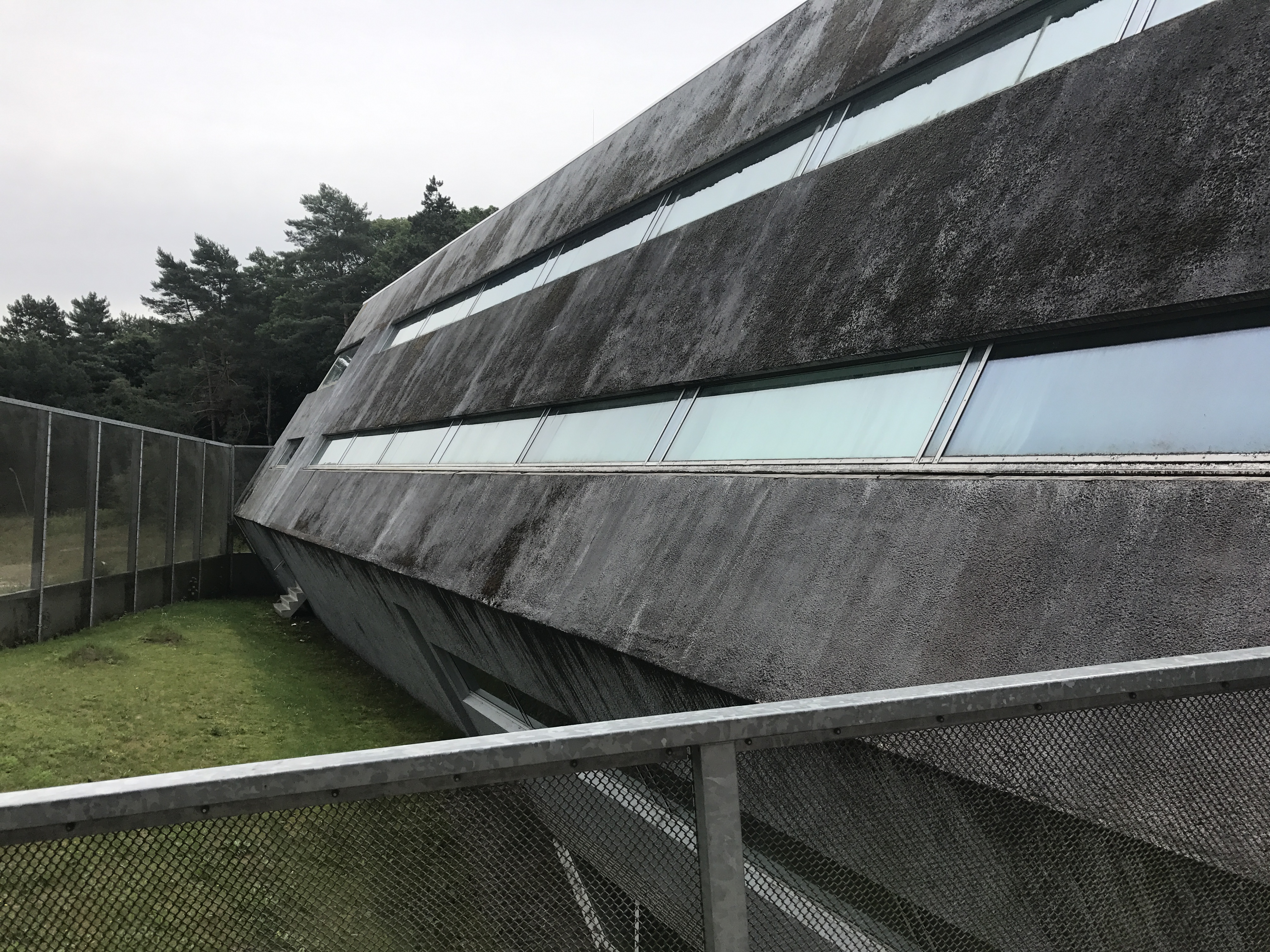
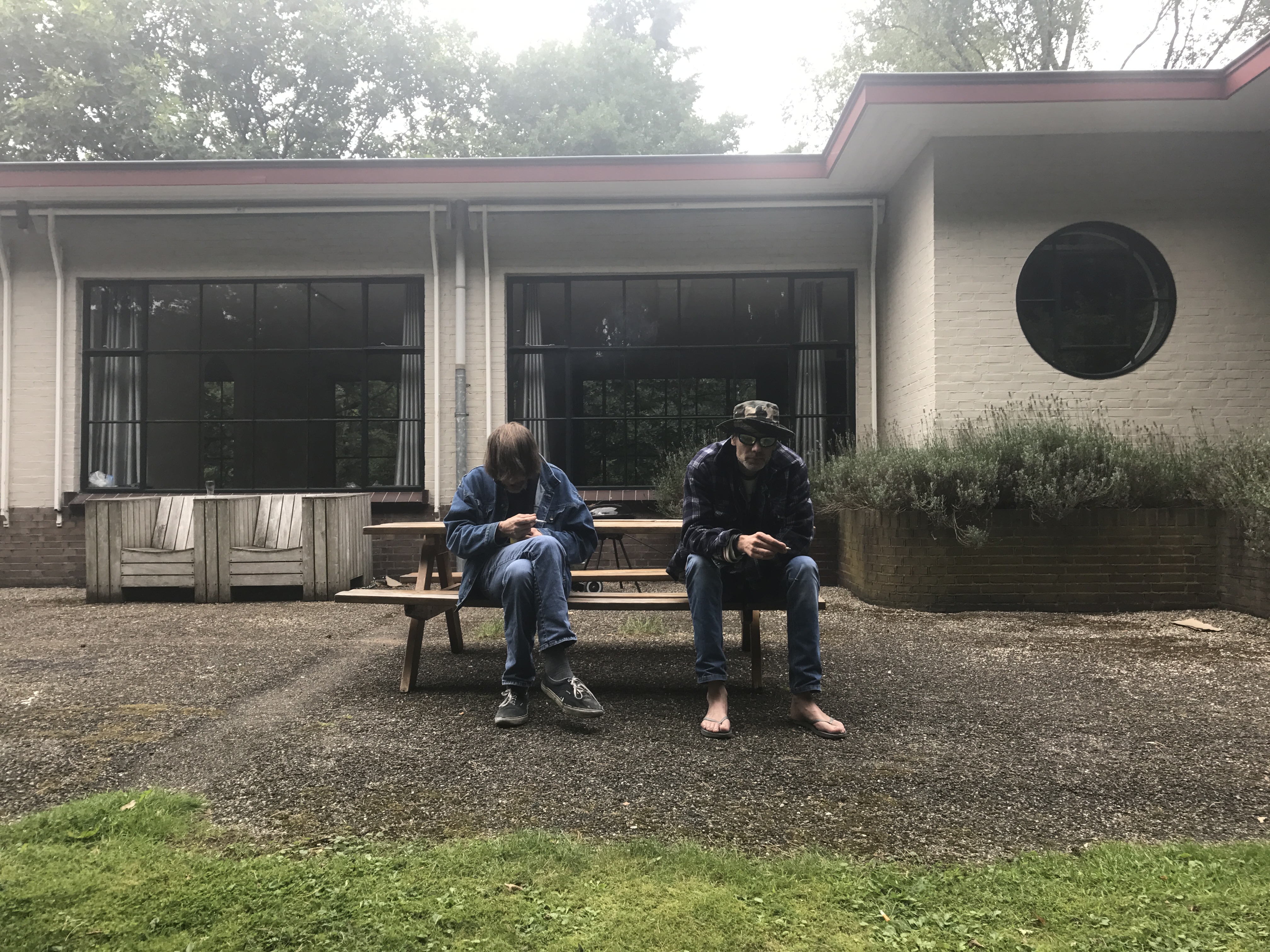

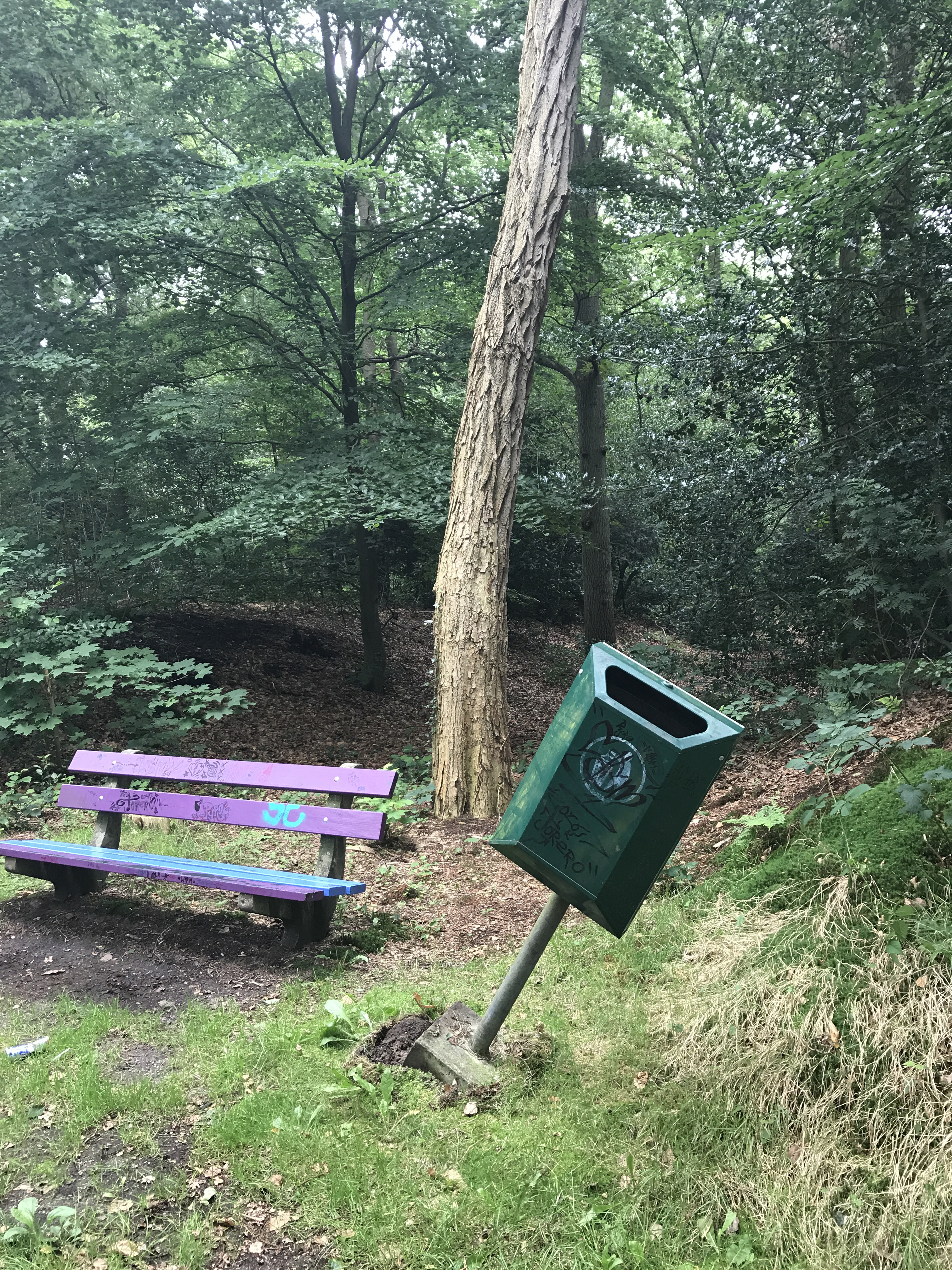
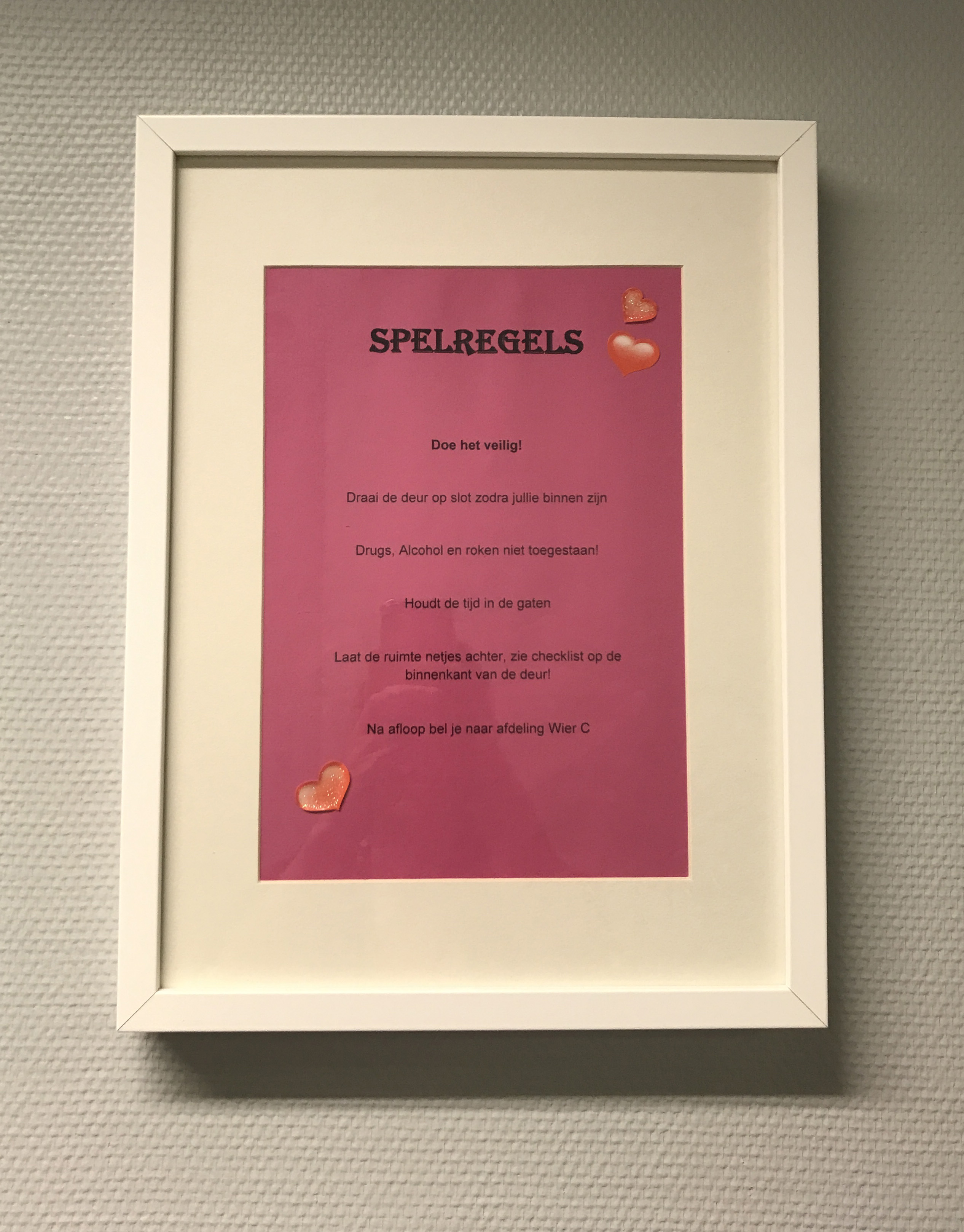




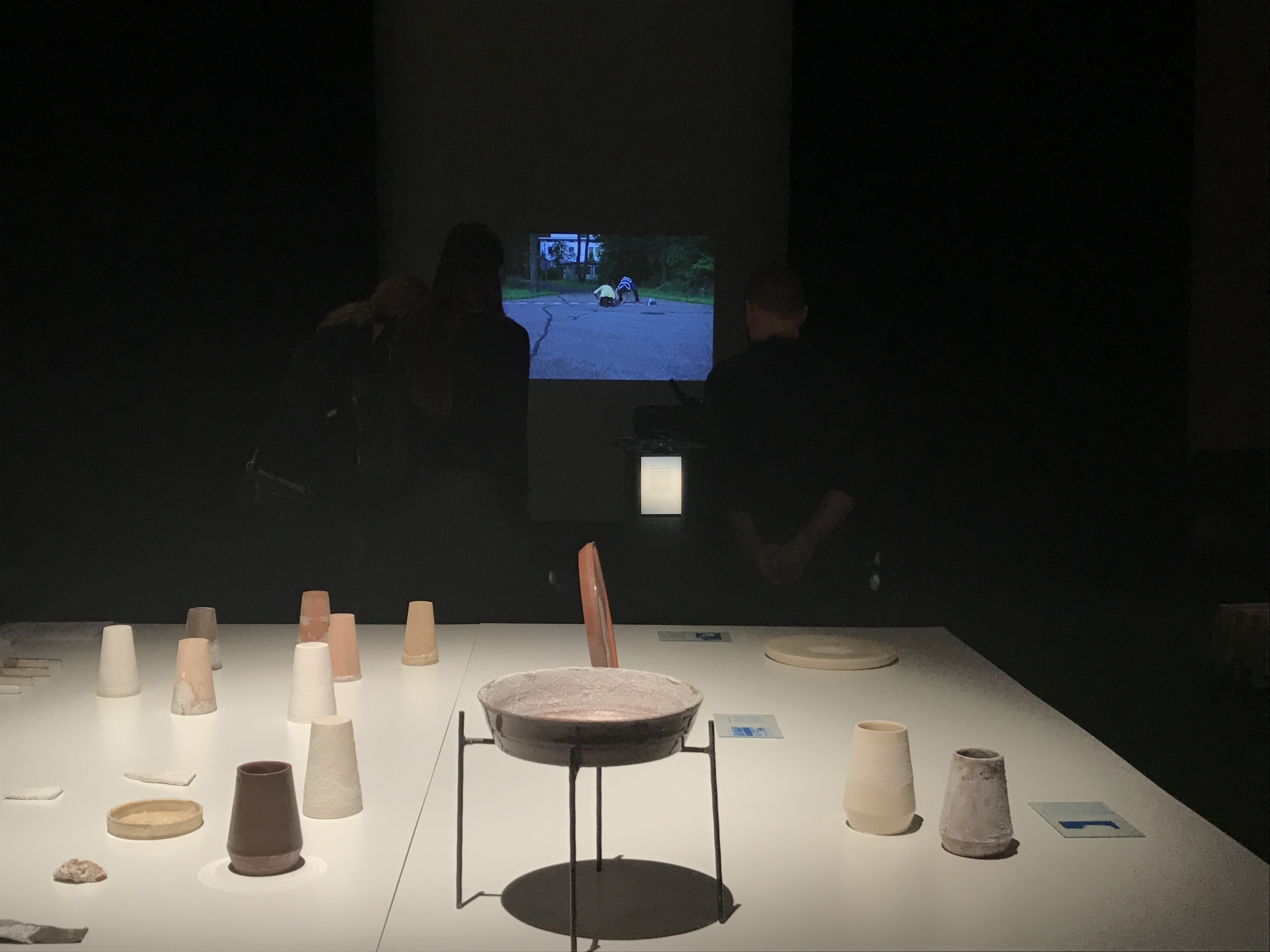
Work in front: Shahar Livne
